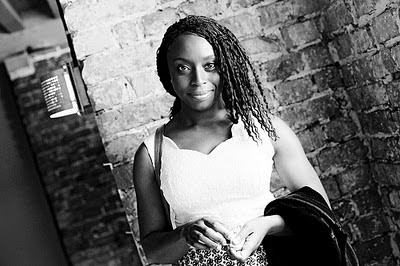Biafra is one name engraved in the subconscious
of many nations. The Biafra War marks the first steps of humanitarian work with
what has been called the French Doctors of the dawning Médecins Sans Frontières
going to the rescue of Biafra people starving because of the blocus imposed by
the Nigerian federal government. To Congolese people, “Biafra” refers to a
bloody episode of the country’s story. The word does refers to insurrection.
Memories of Biafra, a tiny ephemeral country which seceded from the giant
republic of Nigeria and fought for its freedom during four years.
 |
| Tous droits réservés par simakorenivski |
That bloody page of the Nigerian
history is precisely the topic of Chimamanda Ngozi Adichie’s novel. Her very
controlled and compact style takes the characters to two different times: the
beginning of the 60’s just after the African independences where the author
progressively sets the characters of the novel and the social and political
context. Then she takes the reader to the end of the 60’s with the roaring
conflict and the evolution of the different characters.
I won’t introduce those characters, not because I don’t want to, but I’ve really being fascinated by the construction of each figure, the tragedy behind the trajectories, the encounters, the injuries, the splits, the disappearances, the hopes and madness…I wouldn’t be able to stop if I had to make a description. [You wonder what to say after finishing reading some novels but in this case everything was cristal clear] You got my enthusiasm about this book. It’s about two twin sisters from a wealthy igbo family during the first ten years of the independent Nigeria.
Chimamanda Ngozi Adichie first evokes the happy days following the independence. The story is subtly counted and illustrated with the ardor of the local intelligentsia who argues endlessly, theorizes that new Africa and denounces the first forms of corruption. But they underestimate the ramping evil left by the former British colonial power which opposed the ancient precolonial nations: the hausa people in the north, Muslim and undereducated on one side and the southeast igbo, Christianized and overflowing with senior executives, entrepreneurs, traders on the other side. After a coup d’état led by igbo militaries, the first massacres perpetrated in the north cast a shadow over the country. People wake up to the tough reality of a divided country where the biafran secession is a try to recapture a nation weakened by the colonial dividing as decided in Berlin in 1885. The biafran military bravery is confronted with the suffering of its people facing hunger, diseases and bombings. Chimamanda turns back the clock of history without ever letting the reader get lost within the story of the characters caught in torment.
This book is my heartthrob and a lucid reflection about the 60’s Nigeria.
Article original traduit du français par Titilayo Agbahey
No comments:
Post a Comment